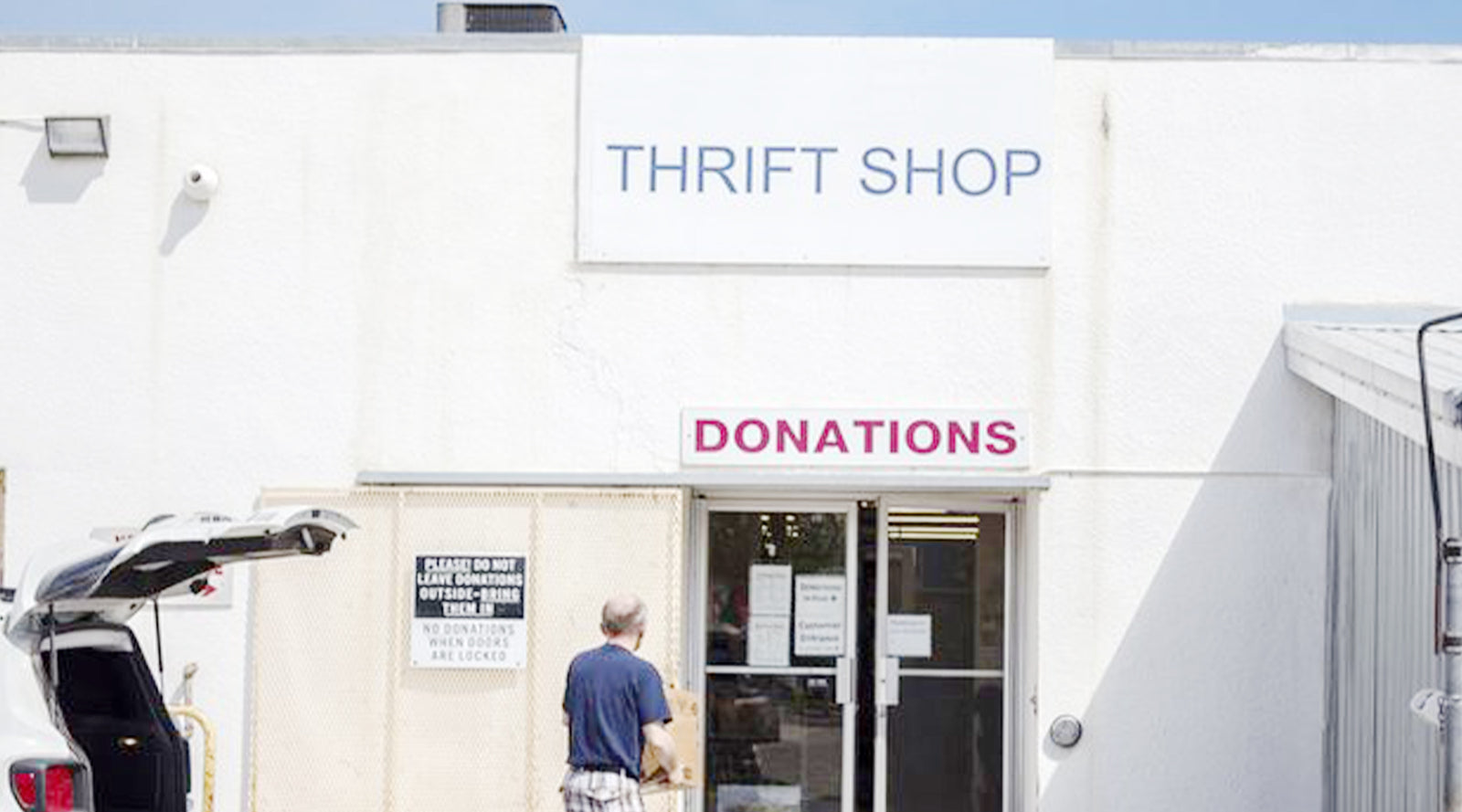Shop
Our World

How-To Recycle your Clothes
September 19, 2018 3 min read
How-to Recycle your Clothes
"What’s the harm in shopping fast-fashion trends if I donate the clothes I don’t want?" That is a fair question that we have heard many times. And in all honesty, that's a question we have also asked ourselves at some point on our sustainable fashion journey.
Sustainable fashion is about being mindful of the environmental and social impacts that your clothing purchases are making. The #slowfashion movement means you are consciously choosing to buy higher-quality items that are timeless. Buying closet staples means you aren’t falling into the constant need for the next trend.
But what should you do with the clothes that no longer serve you - the ones you may have accumulated in your past fast-fashion-addict life or the ones that simply do not fit you or your style anymore?
Donating your unwanted clothing to the nearest thrift store has more or less become the norm. Sadly, only 10% of the clothes we donate actually gets resold. Think about how many people in the world are giving away clothing every day. In New York City alone 400 million pounds of clothes are wasted every year. Charities and thrift stores like Salvation Army, Goodwill and Value Village, are overflowing in donations - rotating deliveries every four weeks. What does not get sold within that period ends up in landfills, is incinerated or is sent to developing countries.

A stand of used shoes in Africa
Documentaries such as The True Cost, have shed light on the immense amounts of clothing donations that have been shipped to developing countries, like Haiti. The influx of clothes completely eradicates the local industry. Independent clothing designers/retailers/seamstresses can’t make a living doing what they love because the need for new clothes isn’t necessary when shipping containers full of used clothing are coming in from North America on the daily.
So back to the question, what should you do with your unwanted clothing? Considering the statistic above, your ultimate goal should be to find your used clothing a new owner that will wear them.
1. Sell your garments
We are lucky to live in a day and age where the internet has made it incredibly easy to sell used goods. There are many options: buy and sell Facebook groups, Craigslist, apps like Depop, and platforms like Poshmark. Use what you prefer and make some money you can reinvest in high quality garments.
The reason we are suggesting reselling as the first option is because we assume that if someone is willing to pay for something used- and let's be honest, going through the trouble of meeting in person to get the item or pay for shipping - they will be more likely to wear and cherish the clothing.
2. Your entourage
Chances are there is someone in your entourage (friends, cousins, neighbours, colleagues, etc.) who wears the same size as you. Let this person go through your bag of unwanted clothing first. Not everyone likes to shop at second-hand stores, but a lot of people will gladly take and wear used clothes that are given to them by someone they know.
3. Donate smartly
Did you know that Value Village is a for-profit organization? Donate smartly to non-profit organizations. You can easily do so by doing a quick Google search [“where to donate clothes around me”] to find small local organizations near you. Most of the local charities list on their websites specific types of clothing/goods they are currently taking donations for. This means they aren’t dealing with overstock and the chances your product will get used is higher than 10%. Needless to say, it is an amazing feeling just knowing that our donations are actually helping and doing good!
To give you a head start, here are some local charities in Vancouver, BC.
DOWNTOWN EASTSIDE WOMEN CENTRE
YMCA METRO VANCOUVER
DRESS FOR SUCCESS
Here are some local charities in Toronto, ON.
DRESS FOR SUCCESS
NEW CIRCLES
THE YONGE STREET MISSION – DOUBLE TAKE STORE
Finally, on your journey to an ethical closet consider shopping second-hand. Doing so allows you to contribute to increasing the percentage of donations being sold locally while helping to reduce the environmental impacts of packaging, shipping, and transport. Plus, you’re giving a great quality piece a new life and taking it on a new journey – how beautiful is that?
For more useful ethical fashion tips, subscribe to our newsletter (just below)!
- Kristen, ethical fashion enthusiast & eCommerce Specialist at Harly Jae
- Laïla, Owner & Designer at Harly Jae
Subscribe
Sign up to get the latest on sales, new releases and more …


